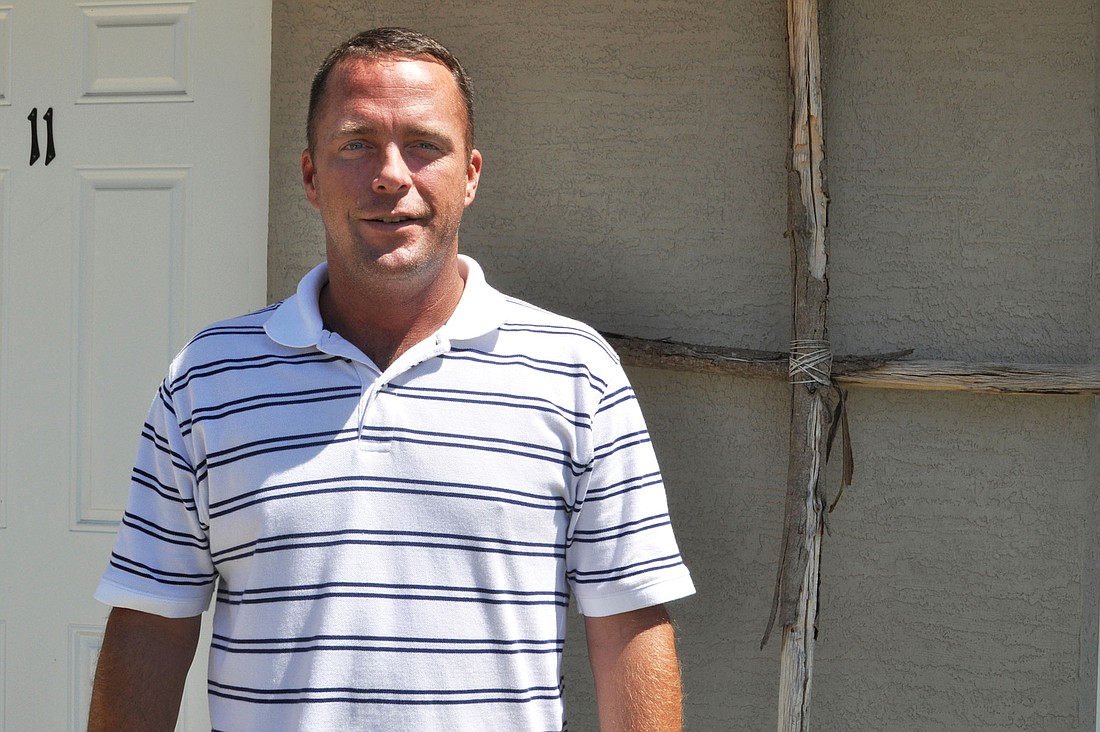- July 15, 2025
-
-
Loading

Loading

Kyle Beiner is the last person one would expect to struggle with addiction. After high school, he joined the Marines and eventually became a sheriff’s deputy at the Collier County Sheriff’s Office in Naples. But, after a back surgery in 2003, Beiner became addicted to the prescribed pain medication, and his life began to spiral into addiction.
“I was just out of control,” remembers Beiner. “It cost me my job. I got divorced. I had a great career; I was a violent-crimes detective. By the end, I was holding a sign for minimum wage. I just couldn’t get back on my feet.”
After four, unsuccessful, attempts at a traditional, 28-day rehabilitation program, and years of addiction, Beiner was left without options. With nowhere else to go, he decided to check into St. Matthew’s House, a structured recovery program for addicted and homeless men in Naples. The decision was especially tough for Beiner.
“I knew about St. Matthew’s, because I used to drop off people there as a deputy,” he says. “I didn’t want to go. It was right by the sheriff’s office, and I would see a lot of old co-workers. It was very humbling.”
For Beiner, and others struggling with addiction, finding treatment can be a daunting task. Now that he has successfully completed the program, he brings his experience to the newly opened Sarasota campus, where he works as a director, giving back to the program and helping lead other local men through the recovery process.
After re-branding from a previous recovery program several months ago, St. Matthew’s House has launched in Sarasota under its new name, and has adopted the procedures of the Naples location in an effort to best serve Sarasota’s men in need of assistance.
St. Matthew’s offers a free, faith-based service, in which men typically spend eight months in the two-phase program, during which their recovery is based on building their faith.
Bob Kuck, chairman of the St. Matthew’s board and a member of Siesta Key Chapel, brought the program to the attention of the church, stressing the importance of supporting the program.
St. Matthew’s relies on much of its support from local religious institutions and, among other churches, Siesta Key Chapel has been instrumental in helping the program in its transition to sustainability.
The Rev. Kathi Wiggins says church members have been volunteering to help with bookkeeping, website development and renovating the new campus: a group of duplexes on Altoona Street, which currently houses about 15 men.
“We want to help transition St. Matthew’s into being self-sustaining,” said Wiggins. “When the men come into the church, our members are just wowed by their stories. Once they go through the program, they really are a tremendous asset to the community.”
In the first phase of the program, men who have stopped abusing drugs and alcohol are closely supervised by other men, such as Beiner, who have already completed the program in Naples, and a lot of emphasis is placed on personal accountability.
“In phase one, the men have to submit to rigorous discipline,” says Kuck. “They’re confined to the campus for a period of time, and they can’t touch alcohol or drugs; and they don’t have access to certain commodities, like cell phones, at first. They have to make a break from their past behaviors and influences.”
After completing phase one, which Kuck says is the most challenging aspect of the program, the men are invited to move on to phase two, in which they have much more freedom. They’re required to get jobs, pay rent and participate in weekly community service, including cooking and serving meals to the homeless.
“There’s a self-serving nature to addiction,” says Kuck. “The service aspect allows them to get away from that by providing them with an opportunity to give back to the community.”
For Beiner, the unique nature of the program was exactly what he needed.
“With traditional rehab, a lot of times they rush you through, and if you don’t have the proper insurance, you can’t always get the help,” says Beiner. “The amount of time that St. Matthew’s gives you makes it easier to get back on your feet. Now, having the opportunity to help others makes my life even better. It’s very rewarding.”
How to help
Donations may be sent to 5461 Altoona St., Sarasota, 34232. Call 554-4663.